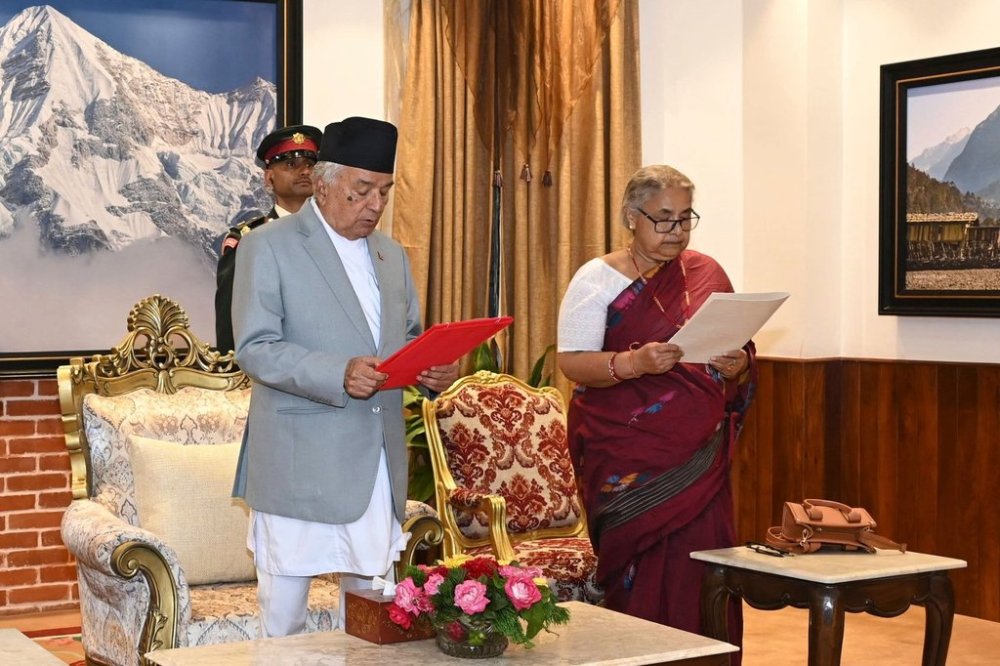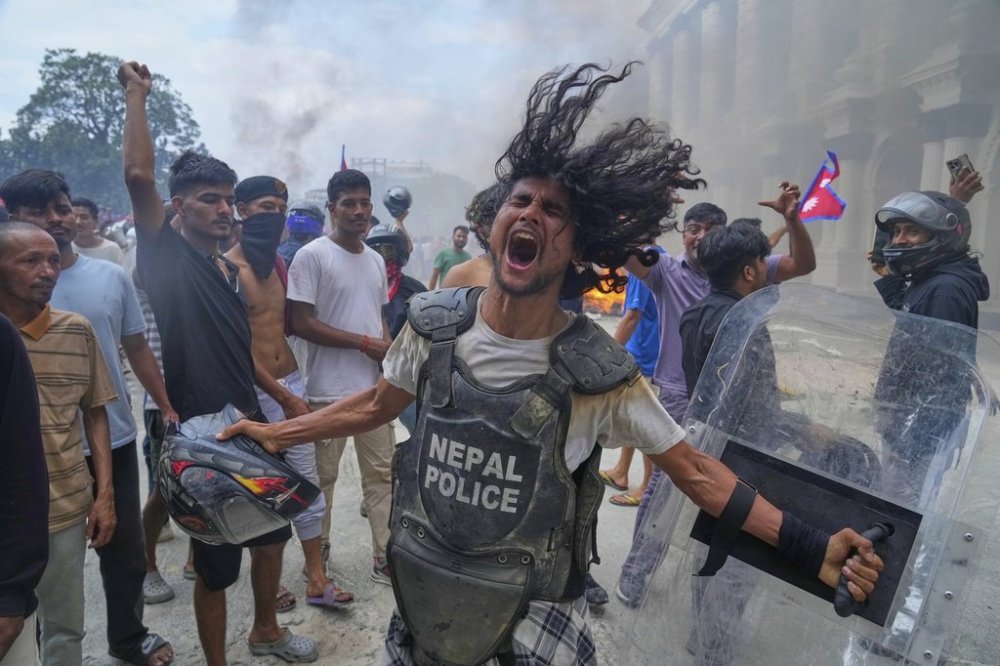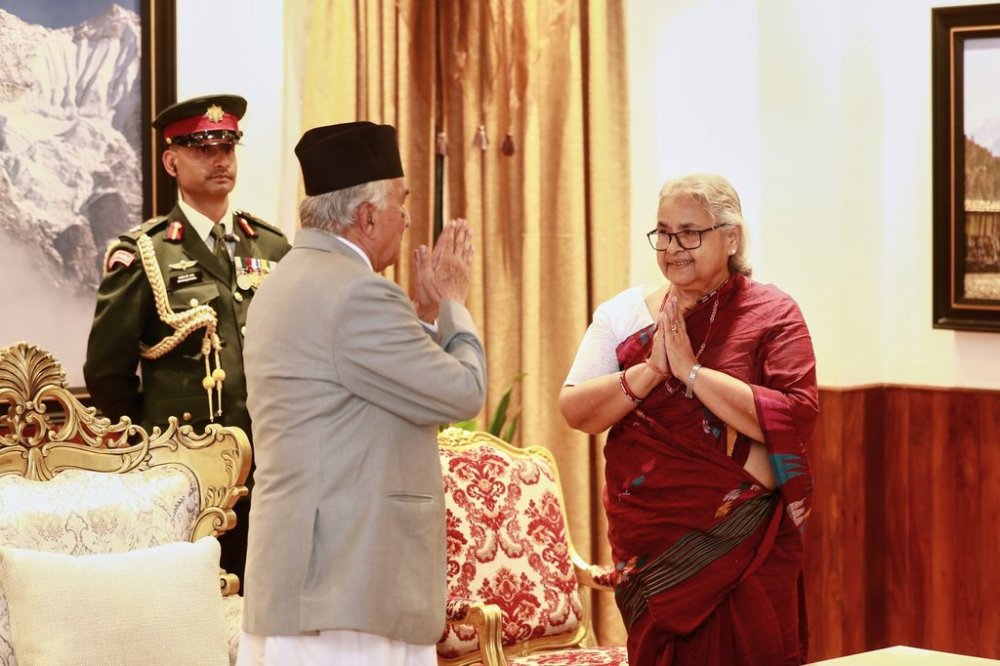Nepal has first woman prime minister as president dissolves parliament and sets March elections
Advertisement
Read this article for free:
or
Already have an account? Log in here »
To continue reading, please subscribe:
Monthly Digital Subscription
$0 for the first 4 weeks*
- Enjoy unlimited reading on winnipegfreepress.com
- Read the E-Edition, our digital replica newspaper
- Access News Break, our award-winning app
- Play interactive puzzles
*No charge for 4 weeks then price increases to the regular rate of $19.00 plus GST every four weeks. Offer available to new and qualified returning subscribers only. Cancel any time.
Monthly Digital Subscription
$4.75/week*
- Enjoy unlimited reading on winnipegfreepress.com
- Read the E-Edition, our digital replica newspaper
- Access News Break, our award-winning app
- Play interactive puzzles
*Billed as $19 plus GST every four weeks. Cancel any time.
To continue reading, please subscribe:
Add Free Press access to your Brandon Sun subscription for only an additional
$1 for the first 4 weeks*
*Your next subscription payment will increase by $1.00 and you will be charged $16.99 plus GST for four weeks. After four weeks, your payment will increase to $23.99 plus GST every four weeks.
Read unlimited articles for free today:
or
Already have an account? Log in here »
KATHMANDU, Nepal (AP) — The president of Nepal on Friday appointed former Supreme Court Chief Justice Sushila Karki as interim prime minister and the first woman to head the Himalayan nation’s government following fiery protests that caused the collapse of the previous administration.
President Ram Chandra Poudel also dissolved parliament and set March 5 as the date for elections based on the recommendation of the new prime minister, the president’s office said in a statement late Friday. The most recent legislative elections were held in 2022.
Karki, a popular figure while serving as the court’s only female chief justice in 2016 and 2017, was sworn in by the president Friday in a small ceremony at the presidential residence that was broadcast on state-run television.
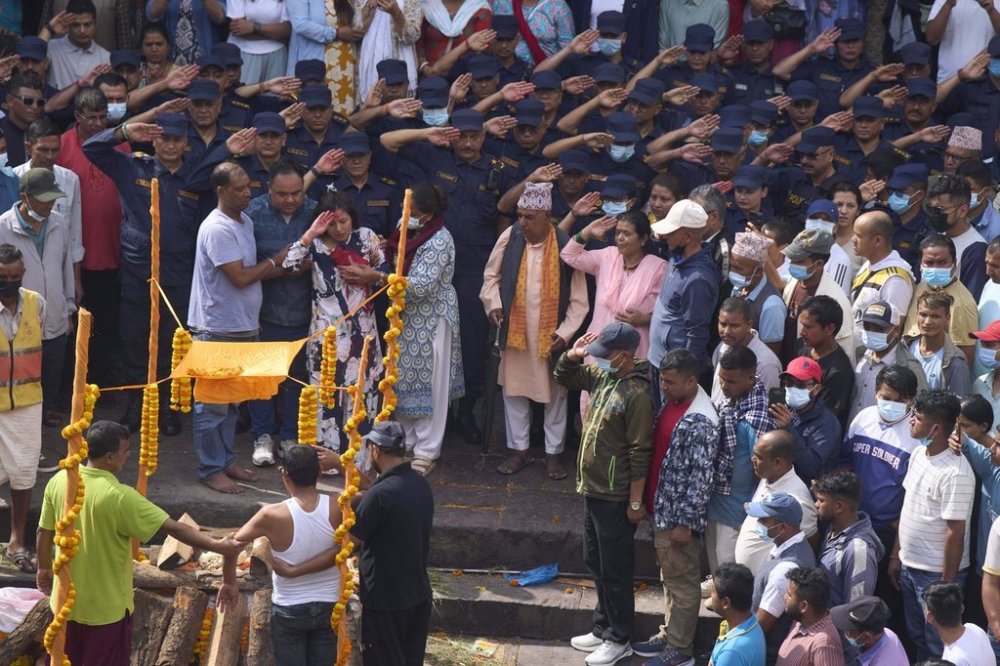
Karki, 73, was known for her stand against corruption in the government while serving as chief justice. Some lawmakers tried to impeach her in April 2017 and made accusations of bias, but the move was unsuccessful and criticized as an attack on the judiciary.
Street demonstrations began Monday in the capital Kathmandu over a social media ban turned violent, with protesters attacking government buildings and police opening fire. Though the ban was rescinded, unrest continued over broader grievances. Tens of thousands of protesters attacked and burned the parliament, presidential residence and businesses.
The violence prompted Prime Minister Khadga Prasad Oli to resign Tuesday and flee his official residence. Nepal’s army took control of the capital Tuesday night and negotiations between protesters, the army and the president began over an interim government.
Violence over the past week left at least 51 people dead, police said Friday.
Many of the dead were protesters killed by police fire and some were inmates trying to break out of a jail in the capital, Kathmandu. Three police officers also were among the dead, police said.
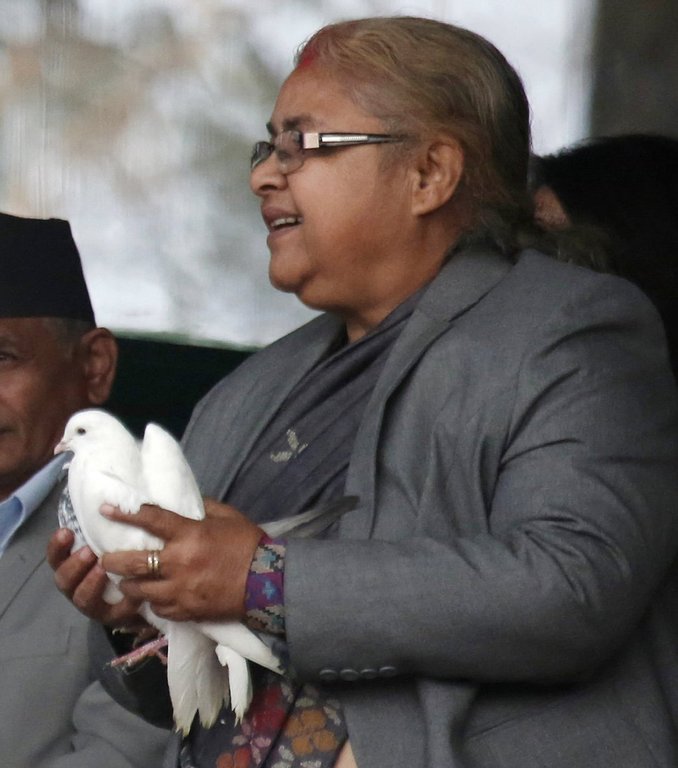
The military has enforced a curfew since late Tuesday, with residents given a few hours per day to leave their homes to buy food and supplies while soldiers guard the streets of Kathmandu.
The demonstrations, called the protest of Gen Z, were sparked by the short-lived ban on platforms including Facebook, X and YouTube, which the government said had failed to register and submit to oversight.
But they soon reflected broader discontent, with many young people angry about what they call “nepo kids” of political leaders who enjoy luxurious lifestyles while most youth struggle to find work.
